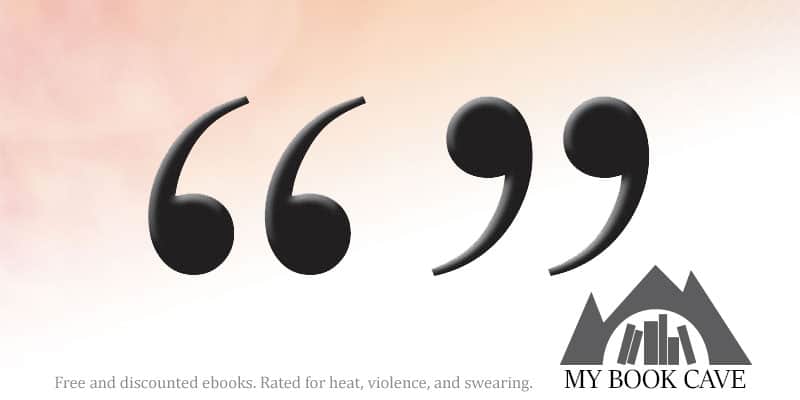Business Casual Closed Double Quote Dress for Women

At Book Cave, we see authors using a variety of single and double quotation marks in text, especially in dialogue. Which way is the "right" way to do it? When should a double quotation mark be used versus a single quotation mark?
The answer is really simple but depends in large part on what audience you're writing to: American or British.
Americans Always Use Double Quotes
American authors should always, always, always use double quotation marks, whether in dialogue or in emphasizing something in the text, unless they are quoting something inside a quote. There are some exceptions for certain disciplines like philosophy, theology, and linguistics, but unless you are in one of those, you don't have to worry about it. Yes, it's as simple as that. (We'll explain why there is so much variation in a minute, so stay tuned.)
American: "I think that's a great idea," she said.
Note that the punctuation goes inside the quotation mark, not outside.
British Often Use Single Quotes
British formatting, on the other hand, often uses single quotation marks for dialogue and emphasis. However, some British publishers follow the American rules of using double quotes.
British: 'I think that's a great idea,' she said.
Quote Inside a Quote
When something is quoted inside a dialogue, American formatting uses single quotes inside the double quotes. Conversely, British formatting uses double quotes inside of single quotes.
American: "She just said 'That should work' and walked out the door," he clarified.
British: 'She just said "That should work" and walked out the door,' he clarified.
When a single quote is next to a double quote, no space should be put between them, although inserting a "thin space" in a formatting program does make them look nicer and easier to see.
For Scare Quotes or Emphasis
American authors should use double quotes for scare quotes (to show a phrase is being used in an ironic or nonstandard way) or for emphasis. British will generally use single quotes. Yes, again, it's that simple. Americans will leave the punctuation inside the scare quote, but British writers will often put it outside. Please note that periods and commas in America always go inside the quotes, but there are exceptions to other punctuation (colons, semi-colons, exclamation points, and question marks) which we cover in another post.
American: Privately, he thought she was nothing like a "hot mama."
British: Privately, he thought she was nothing like a 'hot mama'.
Why We Have Confusion
Some American authors insist on using single quotes for emphasis throughout their books, and there are many websites that condone this, saying that single quotes outside of dialogue mean you intend sarcasm or the opposite of what you are quoting. The problem is, these website bloggers are not experts, and we have a huge number of people using single quotes for all sorts of imaginary reasons. The increase in self-publishing, more crossover with American and British literature, and editors who really aren't that skilled has only added to the confusion.
We can find nothing to support the single quotation mark in the Chicago Manual of Style, which is the standard for most American publishers. In fact, the book encourages using double quotes at all times. Please throw out use of single quotes for scare quotes and rely on double quotes; in some cases, it may even better to use italics (like when highlighting key terms or for emphasis). PLEASE limit all of these, however. If you can take them out without ruining your meaning, do it. Too many words with quotation marks (not including dialogue) makes the words mean absolutely nothing to the reader and are often seen as some unintelligible whim of the author.
Exceptions
As with any rule in the English language, there are exceptions. Certain disciplines like philosophy, theology, and linguistics do use the single quote for emphasis—and leave the punctuation outside the quotes. They have complete style sheets that tell them how to format. But generally, these will not apply to authors, especially fiction authors.
What We Like to See
We prefer American formatting because most of our current subscribers are American, but we do accept British formatting as well. (We admit that it is rare for us to accept books with the punctuation outside emphasis quotes, however, because this is horribly distracting to Americans.) The most important thing is that the formatting is done consistently. Regardless of whether American or British formatting is used, all quotation marks should be "smart quotes," or quotes that curve toward the text.
The same symbol that is used for single quotes is also used for contractions and possessives, although a better word for those would be "apostrophe." We'll talk more about correct apostrophe usage for omitted letters and possessives in our next grammar blog post.
Copyright 2016 by Book Cave
Reuse notice: Non-commercial users, feel free to print out "Single and Double Quotes in Text and Dialogue" for personal use or give to friends, share online, or make a meme of, as long as you attribute and link back to this post. Commercial users, you may share a link to this post or quote a short excerpt from it with attribution and a link to this site, but you may not use this post in its entirety. Thank you for caring about copyright.
glassoprobbild1991.blogspot.com
Source: https://mybookcave.com/authorpost/single-and-double-quotes/
